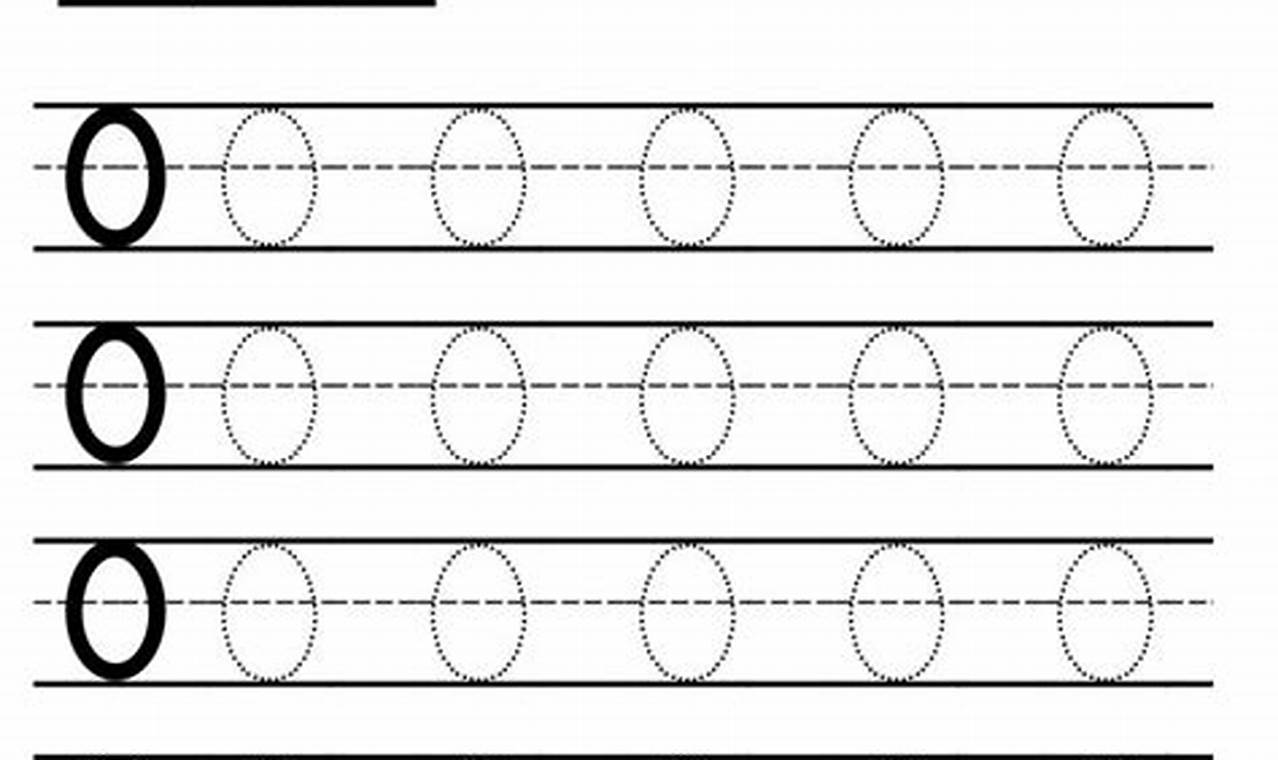Learning to write numbers is a fundamental step in a child’s early education. The ability to form numbers correctly not only supports mathematical understanding but also enhances fine motor skills and pre-writing abilities. Worksheets focused on tracing the number 0 are particularly valuable, as they provide a structured and repetitive practice that builds confidence and accuracy.
The primary benefits of using a “number 0 tracing practice sheet” include improved handwriting skills, enhanced hand-eye coordination, and a solid foundation in number recognition. Repeatedly tracing the number helps children develop muscle memory, making it easier to write the number independently in the future. Furthermore, this practice promotes concentration and patience, vital skills for academic success.
A typical “number 0 tracing practice sheet” contains multiple rows of the number 0, presented in a dotted or dashed format. These guidelines allow children to trace over the lines, gradually refining their motor skills. Many sheets also incorporate visual cues, such as arrows indicating the correct direction of the stroke. Ample space is provided for independent practice, encouraging children to attempt writing the number on their own after tracing.
To effectively utilize the “number 0 tracing practice sheet”, begin by ensuring the child has a comfortable grip on a pencil or crayon. Guide the child to start tracing at the designated point, following the dotted lines carefully. Encourage slow and deliberate movements, focusing on accuracy rather than speed. Breaking the activity into short, manageable sessions can help maintain the child’s interest and prevent frustration. Positive reinforcement and praise for effort are crucial for building confidence.
To supplement the benefits of the “number 0 tracing practice sheet,” consider incorporating other related resources. Kidtraces.com offers a wide variety of number tracing worksheets and other early learning materials. Interactive online games that reinforce number recognition and counting skills can also be beneficial. Additionally, engaging in everyday activities that involve numbers, such as counting toys or identifying numbers on signs, can further solidify the child’s understanding.
In conclusion, the “number 0 tracing practice sheet” is a valuable tool for developing essential handwriting and pre-mathematical skills in young children. By providing structured practice and fostering confidence, this worksheet helps lay the groundwork for future academic success. Parents and educators are encouraged to download and utilize this resource, along with the many other free worksheets available on Kidtraces.com, to support continuous learning and skill development.
